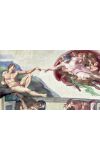
25 Dec 2012 02:09:11
That there are parallels between the New Testament story of Jesus and other mythologies is not a new insight: Max Muller and James Frazer analysed the similarities between Egyptian, Greek and even Norse accounts of a dying and reborn god. More recently, Geza Vermes has noted the striking resemblances between the gospel accounts and stories about Hanina ben Dosa and the Essene community as reconstructed through the Dead Sea scrolls. O'Grady's scope is wider and more historical; the book takes in developments in Rome, Persia, India, Africa and China, and more frequently examines the relationship between state power and religious belief. Jesus was not the only "deified man" in the first century AD. O'Grady begins with the apotheosis of Augustus Caesar (initiating a tradition of imperial ascension to godhood on death best summarised by the Emperor Vespasian, whose last words were purportedly: "Oh! I think I'm becoming a god!"). Augustus was not the only political appointee to divinity. Amanirenas of Meroë, who defeated the Romans in Egypt in 21 BC, was considered a goddess, and there was a long tradition of Egyptian god-kings in the pharoahs. (Although, as a good historian, she eschews the counterfactual, O'Grady's book did make me wonder how Marcus Antonius would have dealt with godhood had he and Cleopatra triumphed at Actium.) In China, the usurper Wang Mang bolstered his claim to power by re-describing the idea of the emperor as the "Son of Heaven".
This panoply of gods, whether incarnate or stellified, forms the crucial backdrop to the events in Palestine. Rome was especially good at syncretism, taking local gods and matching them to their own deities, or expanding the Olympian franchise to accommodate them. With the province of Judaea, this strategy failed. The first commandment forbid polytheism, and, unlike other conquered peoples, the Jews refused to capitulate. One of the strengths of O'Grady's book is in clearly delineating the different kinds of religion. She uses Weber's distinction between folk and elite religions effectively (folk religions provide – one can choose one's Marxist quote here – either opium for the masses or the heart of the heartless world; elite religions are philosophically exclusive). There are religions linked to place and race (O'Grady wisely observes that increased trade and urbanisation meant these religions had to adapt or perish) and there are religions or philosophies (in particular, stoicism and Confucianism) that claim universal relevance. "Christianity", rather than the "Jesus cult", manages to begin as folk religion, locally grounded and antagonistic to the state, and is transformed, by bad old St Paul, into a universalist, elite and state-supporting religion.
One highlight of O'Grady's book is to resurrect Apollonius of Tyana, a figure who caused great consternation for both pagans and Christians until the fourth century: Lucian claimed he was a paedophile (but then taking satirists at their word is a chancey business), Eusebius denounced him as a sorcerer, Porphyry used him to counter Christian claims. There are obvious similarities between Jesus and Apollonius: the raising of the dead, a contrary attitude to conventional morality, miraculous works and miracle births. Apollonius was far better travelled: he is reported to have been to India before returning to Greece. But the differences are as significant as the similarities, a point that bedevils this kind of comparative study.
Apollonius supposedly disappeared physically in a temple (according to one of the three accounts his biographer Philostratus gives, who hedges it with "if he did die"), and reappeared after his death. But while the gospels insist on the physicality of the risen Jesus (eating fish, allowing his doubting disciples to probe his wounds), Apollonius only ever appears as a vision, one that nobody can see except the person in the ecstatic moment. This too is in stark contrast to the story in Acts of the Apostles where Jesus appears to a multitude who see him simultaneously. Likewise, the idea that a human could be divine is, as O'Grady shows, commonplace in the ancient world.
Gentle, but not gentile, Jesus, meek and mild (with the occasional smashing up of the holiest place on earth for his peers notwithstanding) is transformed into the Absolute, in this version, by St Paul. Francis Spufford, in his otherwise intemperate book Unapologetic, does make the point that the epistles predate the gospels; the idea of Jesus as Christ and God predates the soft-soap milquetoast beloved of agnostic Anglicans. There is a profound problem in taking Paul's words as eternal, rather than specific advice to specific churches at specific times, especially when he himself is so careful in drawing a line between his own beliefs and the words of Jesus. The New Atheists are actually as literalist as the fundamentalists in this regard, while the church itself refines and redefines Paul's eloquent words. Yes, Paul can seem collaborationist with power, and yes, you can find in his works the most liberal sentiments expressed in the ancient world. The idea that he was just a Macchiavellian PR man out for his own advancement seems to reflect more on our anxieties than his writing.
O'Grady's book should be read by both believers and non-believers in the open and inquiring spirit it exemplifies. There are a few moments that make the academic side of my nose wrinkle – Livy was never a client of Maecenas, as O'Grady erroneously claims – but my real bemusement is the aporia at the heart of the book. There are countless deifications, myth cults, religious reformers, mystery rituals and theologically inspired radicals in the first century. None of them features a self-resurrecting man-god and none makes forgiveness so central to its message. The resurrection is mentioned en passant here – the Romans ought to have learned to keep the corpses safe – but an account of Christianity's rise that fails to provide an adequate solution to the oddity is wanting.

